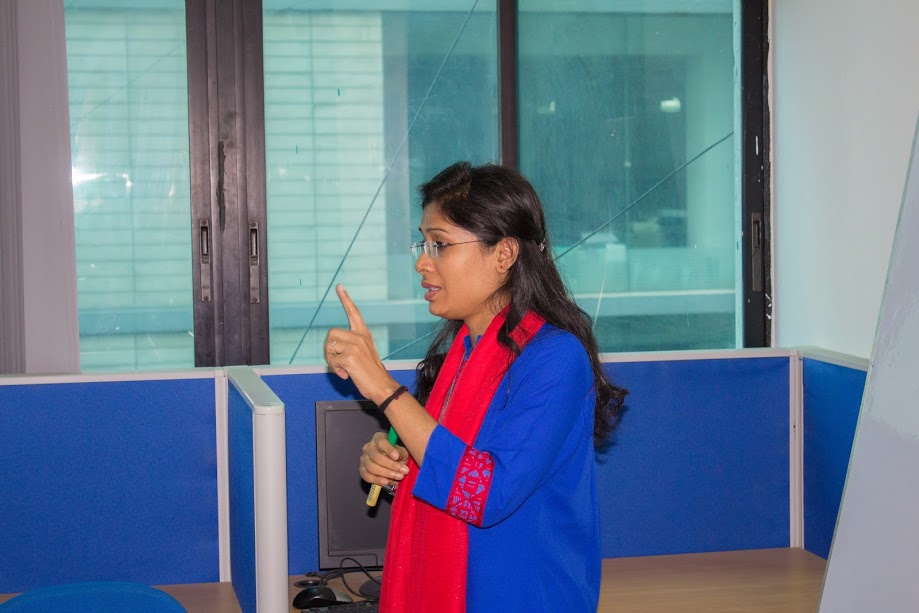Menstrual Hygiene: Challenges during natural disaster
Women and girls try to avoid cyclone centers because they feel that they are not safe. According to a UNDP research, women avoid cyclone shelters for the fear of being sexually assaulted. The centers don’t offer proper hygiene facilities and there are no separate toilets for men and women
‘Many women refrain from going to cyclone centers for the fear of being raped or sexually abused’ says Sharmin Nahar Nipa, lecturer and researcher at the Center for Climate Change and Environmental Research (C3ER) of BRAC University. She has more than five years’ research experience in climate change and disaster management.

A research conducted by Patuakhali Science and Technology University shows that, women try to eat very little at the shelters just to avoid the toilets. There are 2133 cyclone shelters in Bangladesh but none of these has separate toilets for men and women. Many of the shelters were built in the 1960s, 449 shelters in 1990.The shelters lack separate toilets for men and women and have no proper lighting system. A research from January 2012 shows that 83 percent of the shelters have no lights in the washrooms. Most of the washrooms are located outside the cyclone centers, they are on the ground floor and get inundated under surging water.
‘But staying at home does not improve their situation.’ Sharmin says.
She tells that most women use rags and old clothes as sanitary pads. These cannot be washed because there is usually no water during natural disasters. Many women don’t know that changing a pad every four-six hours is also important. Consequently, they suffer from many health complications like rash and urinary tract infection.
“There is a clear connection between natural catastrophes and girls’ dropout from school, too”, Sharmin says. After the massive earthquake in Nepal on 25th May, 2015, many girls did not go to school since the washrooms were destroyed too and they cannot change pads during menstruation. The situation is similar in Bangladesh. This is challenging for the government since ensuring primary and secondary education for every girl and boy is the top 4 of 17 Sustainable Development Goals.
Women have to go through mental stigma when they have period during natural disaster. Because of the lack of private space, they cannot wash the rags and clothes. Washing the menstrual clothes also take much time. For this, women need to spend more time in the washroom. This causes security risk since the washrooms in the cyclone center are not adjacent. Sanitary napkins are preferable in this time but they cannot afford the expense of it during disaster.
During any natural disaster women and children are more vulnerable than men. Women tend to suffer more because of lack of knowledge, insufficient preparations and weaker physical condition. Before and after the disaster, women are more prone to be victims of sexual violence, abductions and other gender based violence.
The coastal belt areas in Bangladesh are hit by natural calamities almost every year. More than 70 cyclones have hit the coastal area of Bangladesh from 1797 to 2007. Cyclone Mora battered the southern coastal part of Bangladesh on May 30. Three people were killed and more than 20,000 houses destroyed.
The government and NGOs, should act to improve the situation. Safe and easy access to sanitation, separate toilets for men and women, supply of water free distribution of sanitary napkins, privacy settings, locks and hooks on the washroom doors can mitigate the risk of sexual violence. Awareness campaign on menstrual hygiene during disaster can play a vital role.
There must be enough supply of sanitary pads in the cyclone centers. Each woman should get one sanitary packet per month. Free distribution of sanitary napkin is mandatory and this should be provided along with other disaster relief.
Sharmin suggests that volunteers can play a big role in mitigating violence against women by creating awareness. Bangladesh Cyclone Preparedness Program has more than 40,000 volunteers in awareness campaigns and in small workshops.
The cyclone centers must have enough sanitary napkins. The existing cyclone centers should be redesigned to provide safe and secure environment for women.
Sources:
- https://thinkprogress.org/5-reasons-natural-disasters-are-worse-for-women-60fcf429b111
- http://jsci.jnu.ac.bd/files/journal/2014/03/10.pdf
- https://www.facebook.com/


